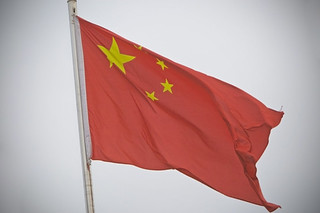Not So Fast, AP: Chinese Microblogging Sites Survive Crackdown

Guest post by Jin Zhao, reprinted with permission from Things You Don’t Know About China.
March 31, 2012. This morning, Chinese government’s cracking down on websites and arresting six netizens for spreading the rumor of a military coup in Beijing became a headlining story in many major Chinese and international media. AP and The Washington Post both reported that two microblogging websites Sina Weibo and TencentWeibo were “punished” and comments have been temporarily suspended until next Tuesday. The report by both news organization, however, is not accurate.
According to Xinjing Bao, a Beijing based newspaper, the government shut down 16 websites because of their “creating and spreading rumors and negligence in management” which have resulted in “extremely negative social impact.” However, Beijing and Guangdong Internet administrative agencies only “severely criticized” Sina Weibo (based in Beijing) and TencentWeibo (based in Guangdong) and “punished them accordingly.” However, there is no information about the specifics of the “punishment.” Xinjing Bao also reports that “the two websites have agreed to abide the relevant laws, implement corrective measures, and further strengthen management.”
I tested both microblogging websites this afternoon and it appears that users can post, comment and repost microblogs as usually. As to what measures the websites are going to implement to “strengthen” their management, I haven’t seen any signs of stricter censorship or blockage.
It is possible that the commenting and reposting functions on weibo sites were suspended and recovered shortly, for some netizens have complained the blockage of comments on these sites. A journalist posted in the group “Chinese Journalists” on Sina Weibo, criticizing the government for “fabricating a harmonious society.” “It’s fine that you (the government) are shameless,” he wrote, “but what makes you really shameless is to block weibo‘s comments.”
It is still unclear what is going to happen to these websites. It will be hard for the government to flat-out close or directly censor these websites largely because of economic reasons. Moreover, like the journalist mentioned earlier, many Chinese are no longer willing to accept whatever imposed on them, and those who see weibo a freer and more open space for information sharing and public debate, many of whom are opinion leaders in China, will not let it to be smothered without a fight.
Updates:
April 1, 1:15 PM EST – As of now, Sina Weibo disabled commenting, but still allows reposting. On Sina Weibo, a message says when one clicks on “comments”: “From March 31, 8 PM, to April 3, 8 PM, commenting is suspended temporarily. We apologize for the inconvenience.” The reason for suspension, according to Sina Weibo, is so that website can “cleanse” the website of “harmful” and “illegal” information.
On Tencent Weibo, it seems commenting and reposting are both still functioning.
[Photo credit: BWJones, Creative Commons.]

